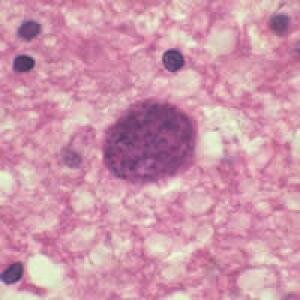Discovery Of Metabolic Pathway For Parasite Could Lead To New Controls For Diseases
Toxoplasma gondii is one nasty bug. A microscopic parasite, it lives in the intestinal tract of cats but can be carried by most warm-blooded animals.
In humans, it can harm or even kill a developing fetus, and it can as well sicken those with compromised immune systems, such as AIDS patients.
Now, for the first time, cellular biologists at the University of Georgia and the University of Pennsylvania have shown that fatty acid synthesis in T. gondii is essential for the parasite's survival. The discovery could lead to the development of new drugs to make the parasite's effects much less troublesome in both humans and animals.
"New drugs with novel mechanisms of action are urgently needed," said Boris Striepen, a cellular biologist in the Franklin College of Arts and Sciences and the Center for Tropical and Emerging Global Diseases at the University of Georgia. "This new study presents us with a viable target for such new drugs."
The research was published this week in the Proceedings of the National Academy of Sciences. Other authors on the paper are Jolly Mazumdar, formerly a doctoral student at UGA and now a postdoctoral fellow at the University of Pennsylvania, and Emma Wilson, Kate Masek and Christopher Hunter of the School of Veterinary Medicine at the University of Pennsylvania.
Toxoplasma belongs to a group of parasites that harbor a chloroplast-like organelle, the apicoplast. Chloroplasts are the home of photosynthesis in plants and algae and are responsible for the green color of leaves. Apicoplasts have long puzzled scientists. What does a parasite living in the brain or blood of humans have to do with a structure associated with harvesting sunlight? It turns out that the chloroplasts have additional functions, and it is these functions that the parasites require.
Striepen and his team discovered that a special chloroplast fatty acid synthesis (FAS) pathway in T. gondii is essential for the parasite's ability to cause disease and to survive. Finding a way to turn off the functions of this pathway could make T. gondii a toothless tiger.
"This is the first robust genetic evidence that a specific chloroplast pathway is essential to the organism," said Striepen. Humans also have a fatty acid synthesis pathway, but because it is entirely different from the one uncovered in T. gondii, drug developers could turn off the pathway in the parasite without harming the one in humans. This makes the parasite's vital FAS pathway a perfect target.
This isn't the first time that the apicoplast has been seen as a target for drug intervention. The closely related malaria parasite also harbors an apicoplast. As early as 1998, researchers at the University of Melbourne in Australia published a paper suggesting the apicoplast as a target for new antimalarial drugs. The new paper, however, is the first to explain that the fatty acid synthesis pathway in T. gondii is necessary for the parasite's survival and why.
Toxoplasmosis often remains undiagnosed, and in healthy people, T. gondii causes few noticeable health problems. Its relatively benign status as a disease-carrying parasite, in fact, makes it ideal to study in the laboratory. It is also very amenable to genetic experiments and can serve as a model for such Apicomplexans as Plasmodium, the cause of malaria, one of the deadliest diseases on Earth. According to the World Health Organization there are 300 to 500 million clinical cases of malaria each year resulting in 1.5 to 2.7 million deaths.
For pregnant women and those with compromised immune systems, the problems are much more dangerous. For instance, Toxoplasma encephalitis is one of the leading causes of death among AIDS patients. Fetuses that contract the disease from infected mothers may be born with learning disabilities, vision problems or mental retardation.
Infections in those who are symptomatic are treatable; however, this treatment is not always effective and is often associated with toxicity, which is especially problematic in treating pregnant women.
The research reported in PNAS was supported by grants from the National Institutes of Health.

"Toxoplasma gondii cyst in brain tissue. (Image courtesy of U.S. Centers for Disease Control and Prevention)"
Source: University of Georgia
|